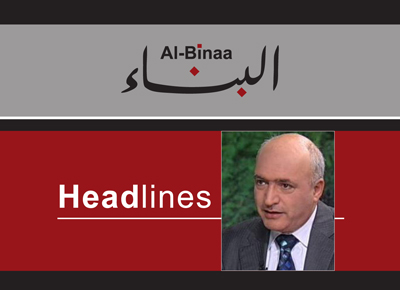Palestinian, Israeli, and American Assurances of Imminent Agreement on Gaza / Pedersen: The Conflict in Syria Is Not Over, and Israeli Attacks Undermine Everything
Hardan: Electing a President, Berri as a Stabilising Force, and Resistance Against Aggression and Division

December 18, 2024
The political editor wrote
Despite the caution warranted by past experiences, parties involved in negotiating a draft agreement on Gaza emphasise that they are closer than ever to reaching a deal. Sources within Hamas state that unless Israeli Prime Minister Benjamin Netanyahu imposes new conditions, an agreement will soon materialise. Multiple American sources confirm that CIA Director William Burns’ visit to Doha underscores significant progress and the need to finalise details and add finishing touches. Meanwhile, within the occupying entity, there is talk of substantial advancements, including rumors of a possible Netanyahu visit to Cairo, later denied. However, Netanyahu’s engagement in the process, evidenced by the participation of IDF Chief of Staff Herzi Halevi in recent negotiations, highlights the level of interest and advanced stage of discussions. Sources converge on the idea that the agreement hinges on mutual flexibility. Netanyahu has reportedly accepted that ending the war and fully withdrawing from Gaza would mark the final stages of the agreement. Meanwhile, Hamas has agreed to release live hostages in the first phase without guaranteed cessation of war or withdrawal, accepting a phased approach with intermediary guarantees, if not explicit terms within the agreement.
In the Syrian arena, UN envoy Geir Pedersen’s briefing to the Security Council highlighted the risks of undermining the current fragile stability. Pedersen pointed to potential flashpoints, beginning with the risk of clashes among armed factions, not all of which align with the pragmatic stances of Hay’at Tahrir al-Sham leader Ahmed al-Sharaa, as Pedersen noted. He also expressed concern over the threat of a Kurdish-Turkish confrontation in northern Syria and urged immediate international intervention to curb Israeli violations of Syrian sovereignty. Pedersen called for a return to compliance with the 1974 Disengagement Agreement, warning that failure to do so would dismantle the existing order and extinguish any hopes for future recovery.
In Lebanon, Syrian Social Nationalist Party leader Asaad Hardan addressed a leadership meeting, emphasising the urgency of electing a new president by the scheduled date of January 9. Hardan praised Parliament Speaker Nabih Berri as a pivotal stabilising force in the nation. He also highlighted the risks Lebanon and the broader region face, identifying aggression and division as existential threats. Hardan reaffirmed the party’s commitment to resistance as the key response and stressed the importance of safeguarding social cohesion and unity.



